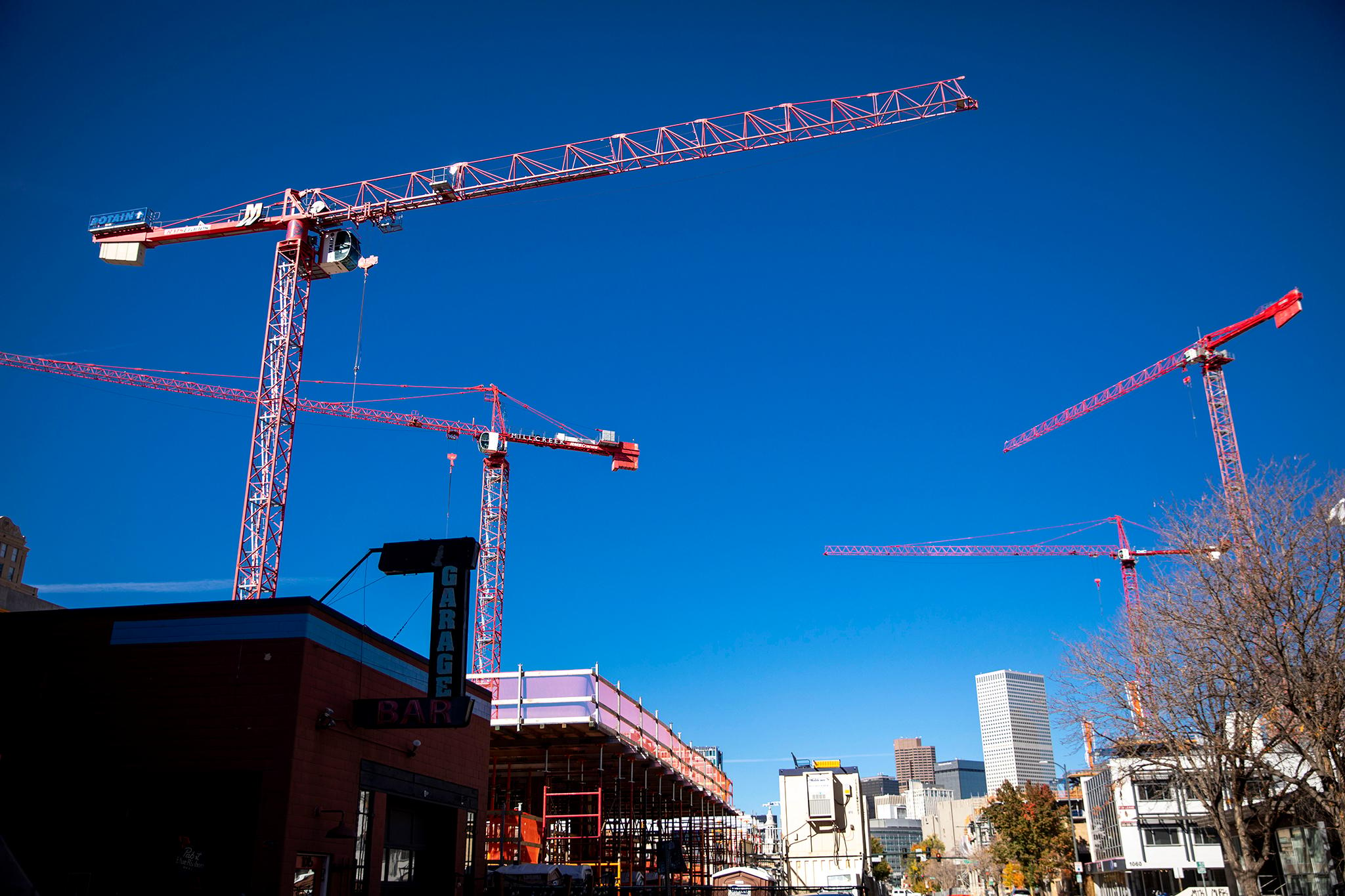Denver Mayor Michael Hancock announced on Wednesday the city's opposition to a sweeping -- and controversial -- state bill that would force many local governments to allow denser housing.
The bill, SB23-213, aims to lower housing costs by allowing more units to be built across the state. It has drawn the scorn of many local governments, whose leaders see it as a power grab by state authorities.
"SB23-213 is a laudable, but fundamentally flawed, top-down approach, and Denver is opposed to the bill as currently drafted," Hancock and City Council President Jamie Torres wrote in a statement.
Leaders of many other local governments, as well as the Colorado Municipal League and the Metro Mayors Caucus, also oppose the bill. Denver's opposition is particularly notable because it's the state's largest city and some parts of it have rapidly densified over the last few decades.
Denver has implemented some of the policies contained within the state bill, Hancock and Torres wrote, including allowing more density near public transit stations and allowing accessory dwelling units in certain areas.
But they warned of the "one-size-fits-all approach that strips away local control" in the state bill.
"We have serious concerns about the attempt to preempt local land-use control; the unintended, but very real consequences of broadly up-zoning when it comes to displacement and gentrification; lack of true affordability requirements in the bill; and the potential to undercut extensive community work to develop bold, but appropriate plans and zoning for our residents," they wrote.
The statement is in line with a previous comment. Before the bill was introduced, Hancock said Denver will, "never, ever surrender local control to anyone."
City Council has not yet taken a formal vote codifying its opposition, but the "vast majority" of council members are in agreement with the Hancock and Torres statement, said City Council spokesman Robert Austin.
Councilwoman Amanda Sandoval, for example, sent her constituents a letter this week saying she appreciates some parts of the bill, but she also called it an "overreach of state powers" that would invalidate local planning efforts and increase displacement.
But hold on, doesn't Hancock have one foot out the door? Does his opposition matter?
While, yes, it's true that Hancock will leave office this coming June, the state bill will either become law or die before then; the legislature must adjourn by mid-May.
Were the bill to pass, it would fall to Hancock's successor (and the next City Council) to decide how to meet its requirements. That will either be Mike Johnston or Kelly Brough, depending on the result of the June 6 runoff election.
In a statement, Brough said, "it's imperative that we find the best solution that fits Denver's needs."
"In Denver, land use is primarily within the purview of the city council - and as mayor, I would not take a position without consulting them first," she added.
The Johnston campaign has not replied to a request for comment on the bill. On the topic of housing more generally, he told the Denver Post in March that, "We know we need to add more housing supply to make Denver affordable."
But, he added: "We also know we want to preserve the unique identity of each of our neighborhoods by not erecting skyscrapers in the middle of residential neighborhoods. However, in many neighborhoods, it is effective and consistent with the architecture and planning to add gentle density in the midst of single family neighborhoods."
Johnston has also been endorsed by pro-development YIMBY Denver.
Denverite reporter Rebecca Tauber contributed reporting to this article.














